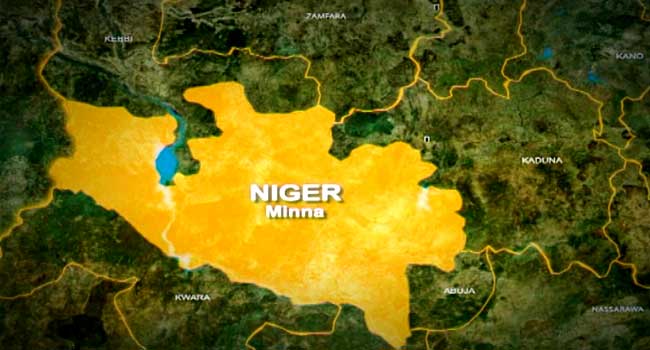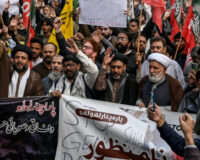The presidents of France, Mauritania, Mali, Niger, Burkina Faso, and Chad on Monday formulated a new framework for expanding military operations against Islamist terrorism in the Sahel region. The new framework – with greater contributions from France, the five African states, and several European countries – has become necessary because of the dramatic increase in terrorist activity in the region, and because of the Pentagon’s plans to reduce the U.S. military and intelligence presence in West Africa, and a corresponding reduction in the overall U.S. involvement in fighting Islamist terrorism in Africa.
On Monday, in Pau, a picturesque town in the French Pyrénées, France and its G5 Sahel counterparts ((Mauritania, Mali, Niger, Burkina Faso, Chad) signed an agreement expressing a renewed commitment to fighting Islamist terrorism in the Sahel region. President Emmanuel Macron of France declared the renewed commitment “marks a very deep turning point” in the fight against terrorist groups in the Sahel.
Analysts, though, question whether there is enough in the agreement to change the dynamics of armed Islamist groups building on their local roots to conduct ever more brazen – and successful – attacks against the armies of Mali, Burkina Faso, and Niger, and against the UN peacekeepers and the French units assigned to the counterterrorism Barkhane campaign.
These attacks have resulted in hundreds of soldiers killed.
The affected countries are justifiably worried that the increasing toll is the result of the inadequacy of their own armed and police forces. The six heads of state meeting at Pau agreed to address this problem by defining a new framework for how their armies will be deployed in the fight against terrorism.
The formal name of the new framework is the“ Coalition for the Sahel.”
A new joint military command will be created.
The forces of the coalition will focus their operations against the IS-affiliated Islamic State in the Grand Sahara (EIGS), on the borders of Mali, Burkina Faso, and Niger. That area has become the epicenter of Islamist violence of recent months.
Macron announced the dispatching of 220 French soldiers, who will join the 4,500 French soldiers already in the theater. More French forces will be deployed in the area within months.
For several months now, Niger has been asking for the creation of an international coalition along the lines of the one set up in the Middle East to fight against the Islamic State organization. The new framework defined in Pau will not be of similar scope, however. France has been calling for greater contribution from several European countries, but it will remain as the leader of the Sahelian system. What is more, the new effort against Islamist terrorism will not be able to rely on American firepower.
The reduction of U.S. contribution to the fight against terrorism in Africa will soon be more keenly felt, as the Pentagon is mulling at reduction of U.S. military and intelligence presence in West Africa
Aware of the Pentagon plans, the Pau summit participants added a sentence to the joint statement, expressing their “gratitude to the crucial support provided by the United States and (…) the desire of continuity.”
Asked about it at the final press conference, Macron confirmed that an American withdrawal from Africa would be “bad news.” “I hope to convince President Trump that the fight against terrorism is also taking place in this area [which] must adapt to the resurgence of terrorist groups – which are international terrorists – and we know they have contacts with the Iraqi-Syrian zone,” he added.
The French president also criticized the conduct of Russia in Africa, and especially in the Sahel, after Russia has launched a propaganda campaign in the region to fuel anti-French sentiments, at the same time that Russia is deploying its semi-private Wagner force in Africa where, according to Macron, they have “a mercenary agenda.”
The Pau summit will be followed by a summit of the G5 Sahel States and France in June in the Mauritanian capital, Nouakchott.
Source: Homeland Security News Wire







